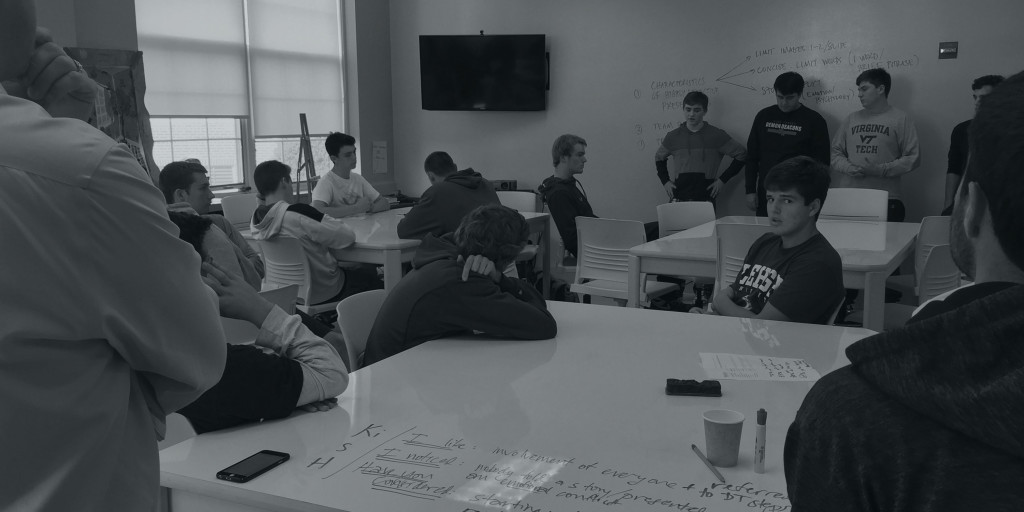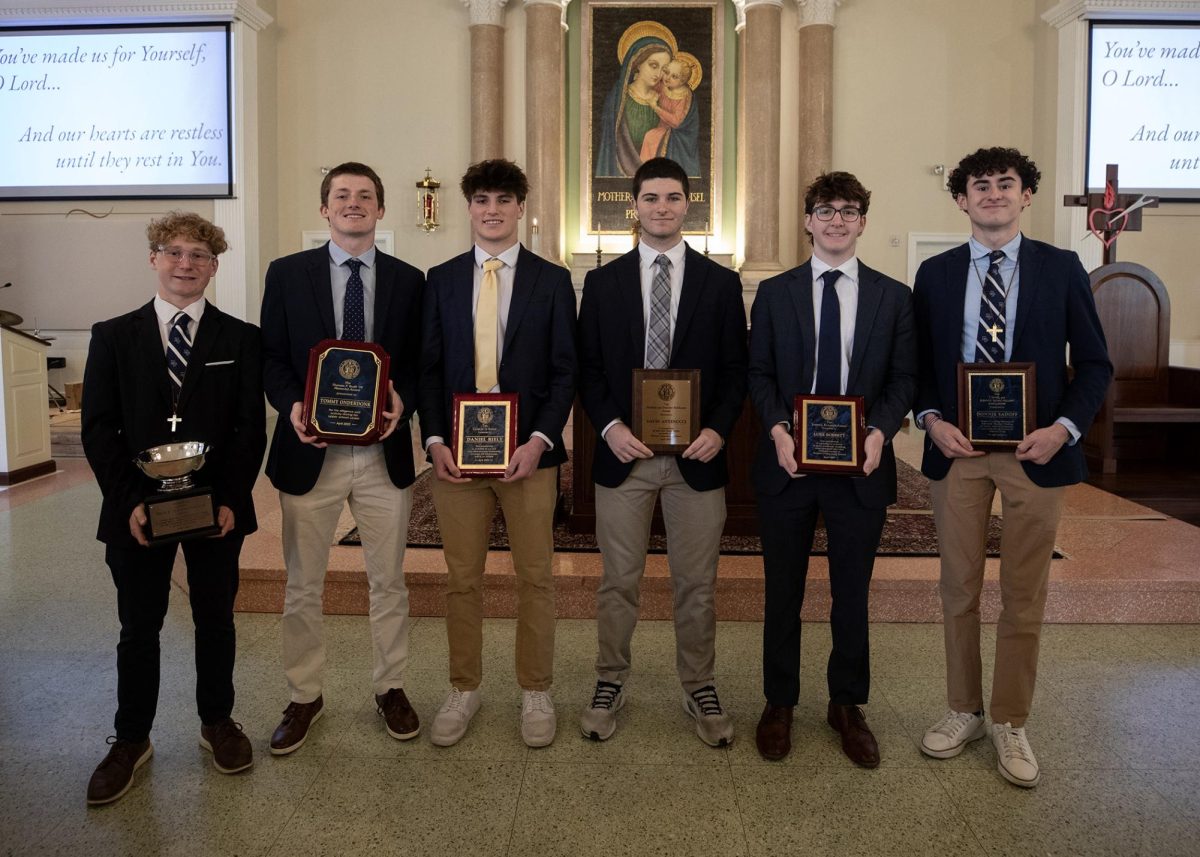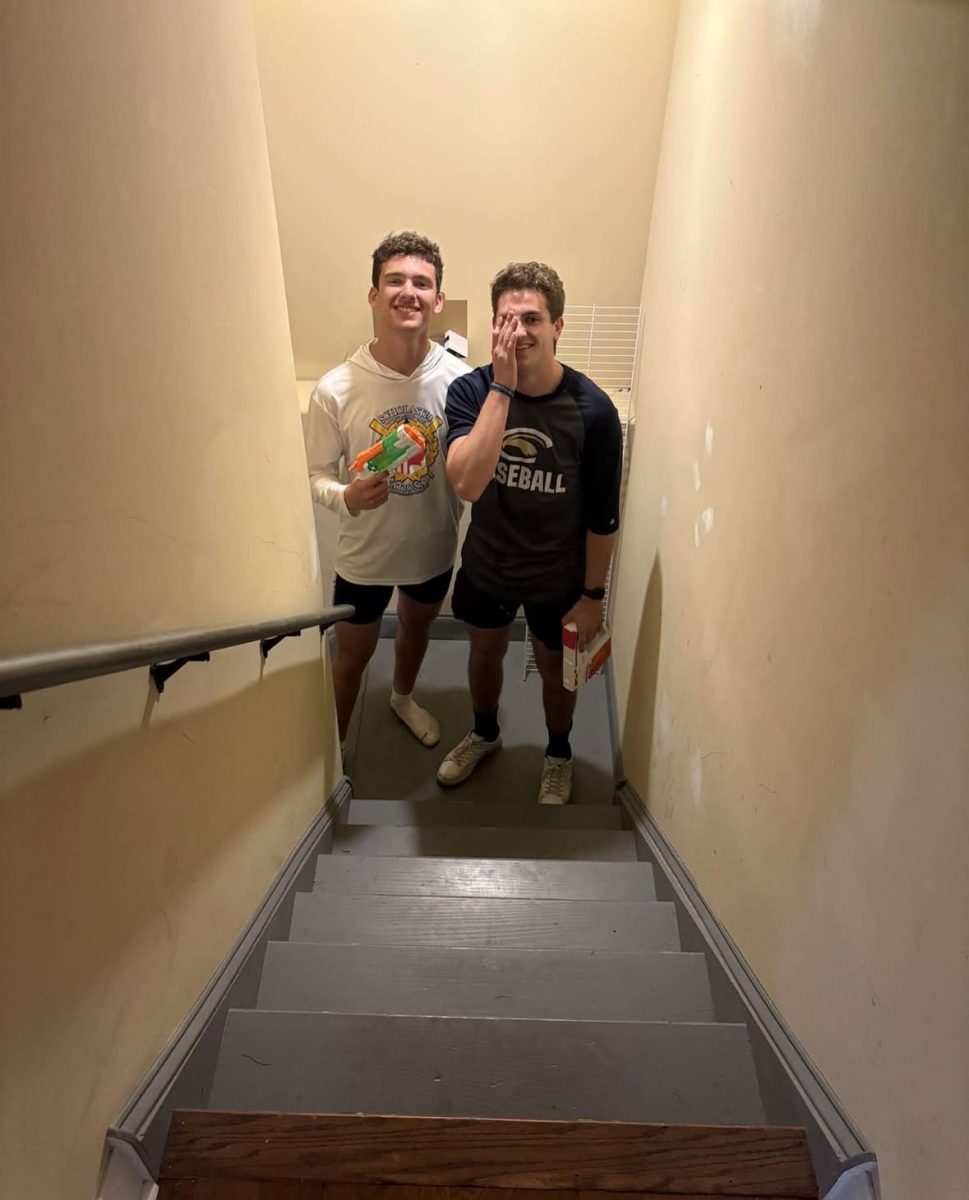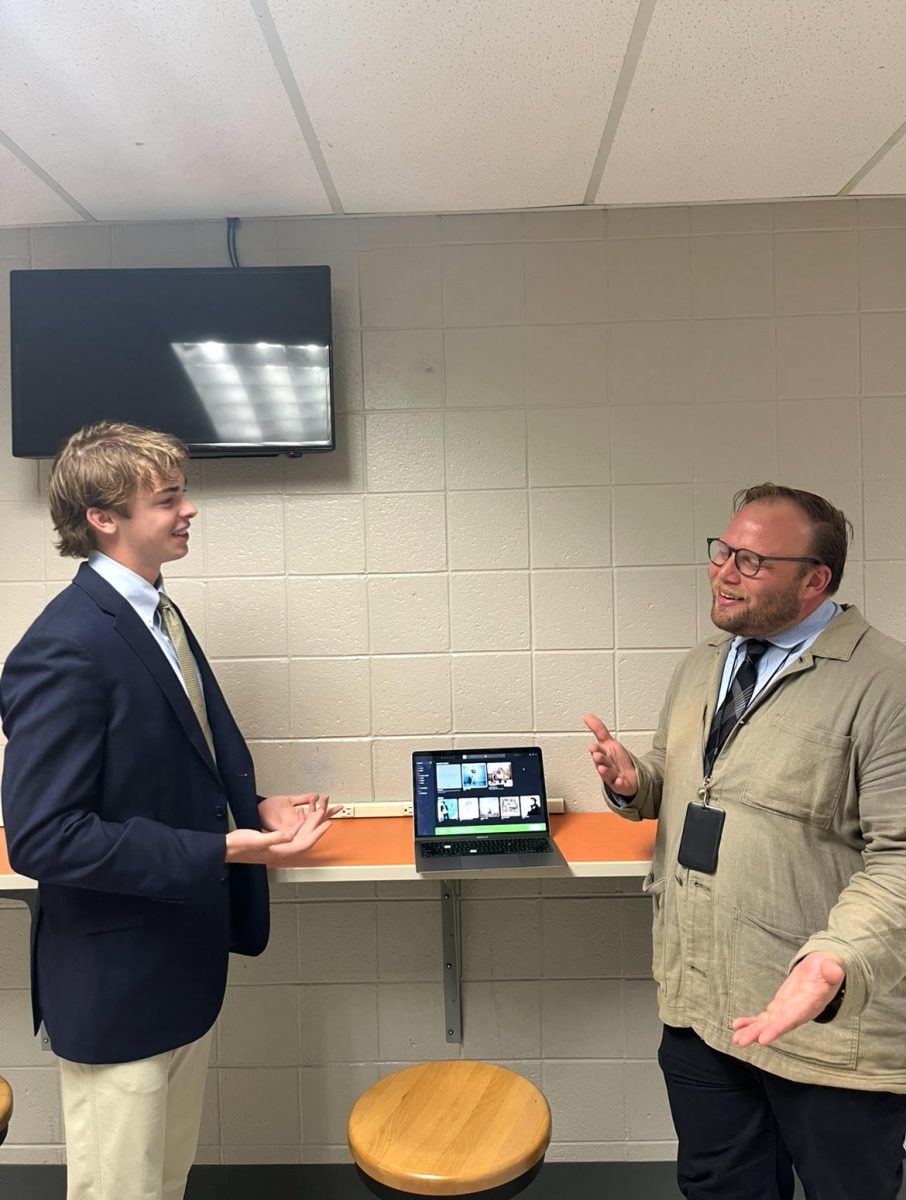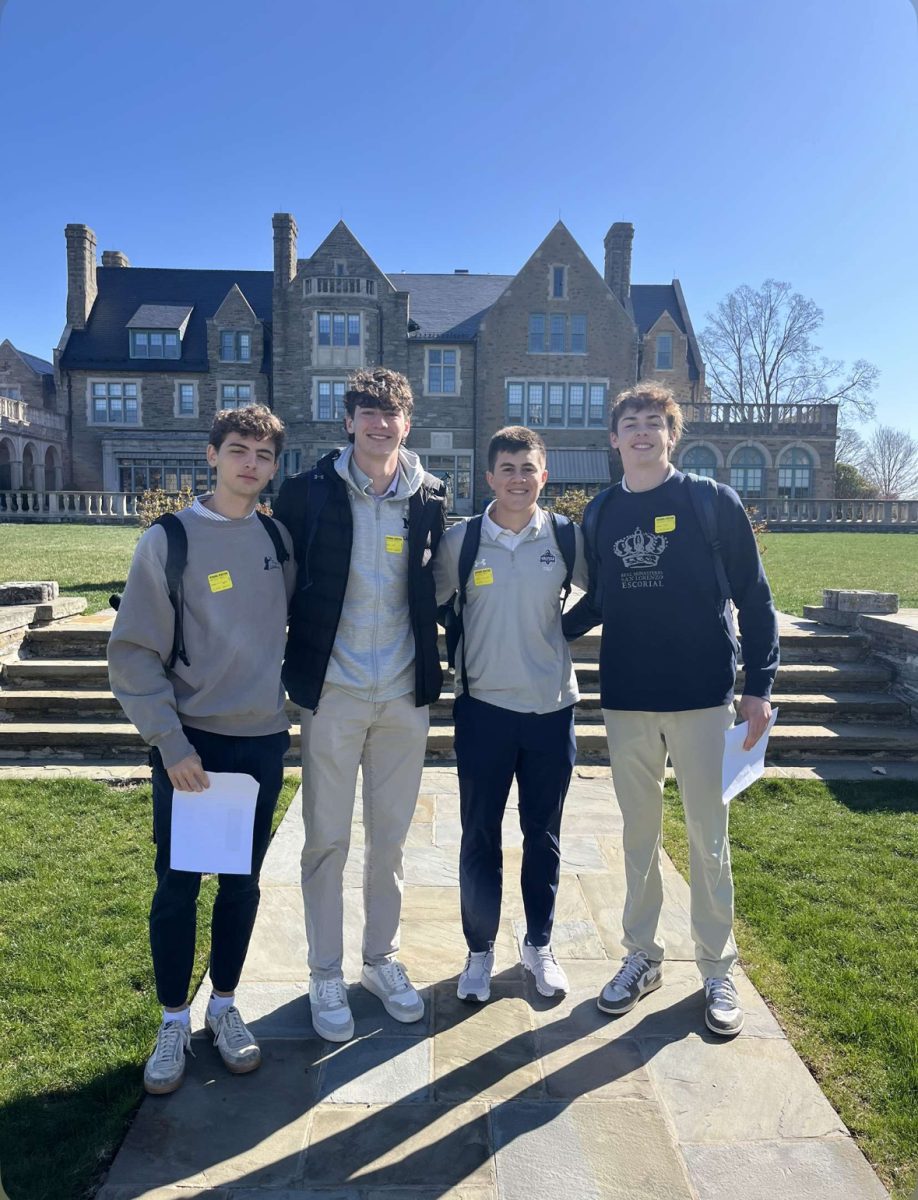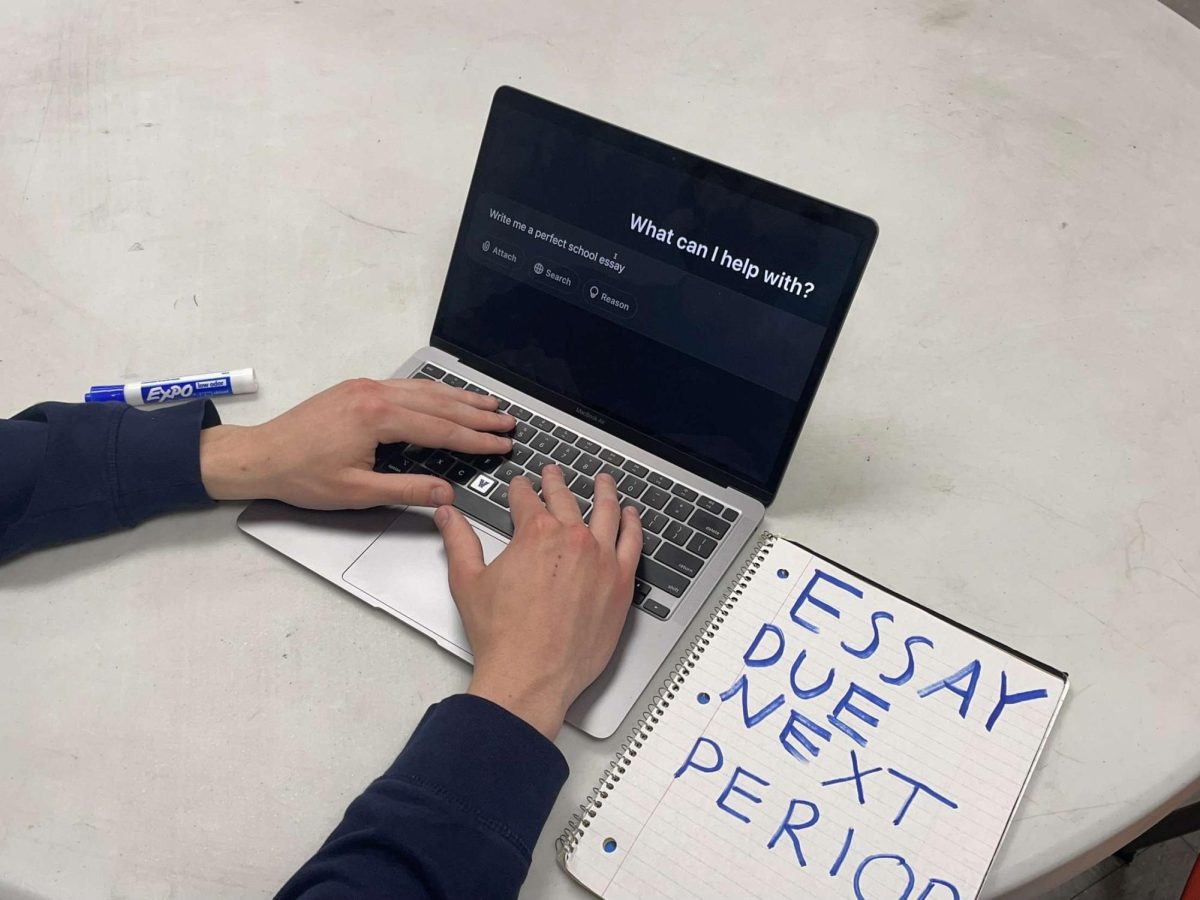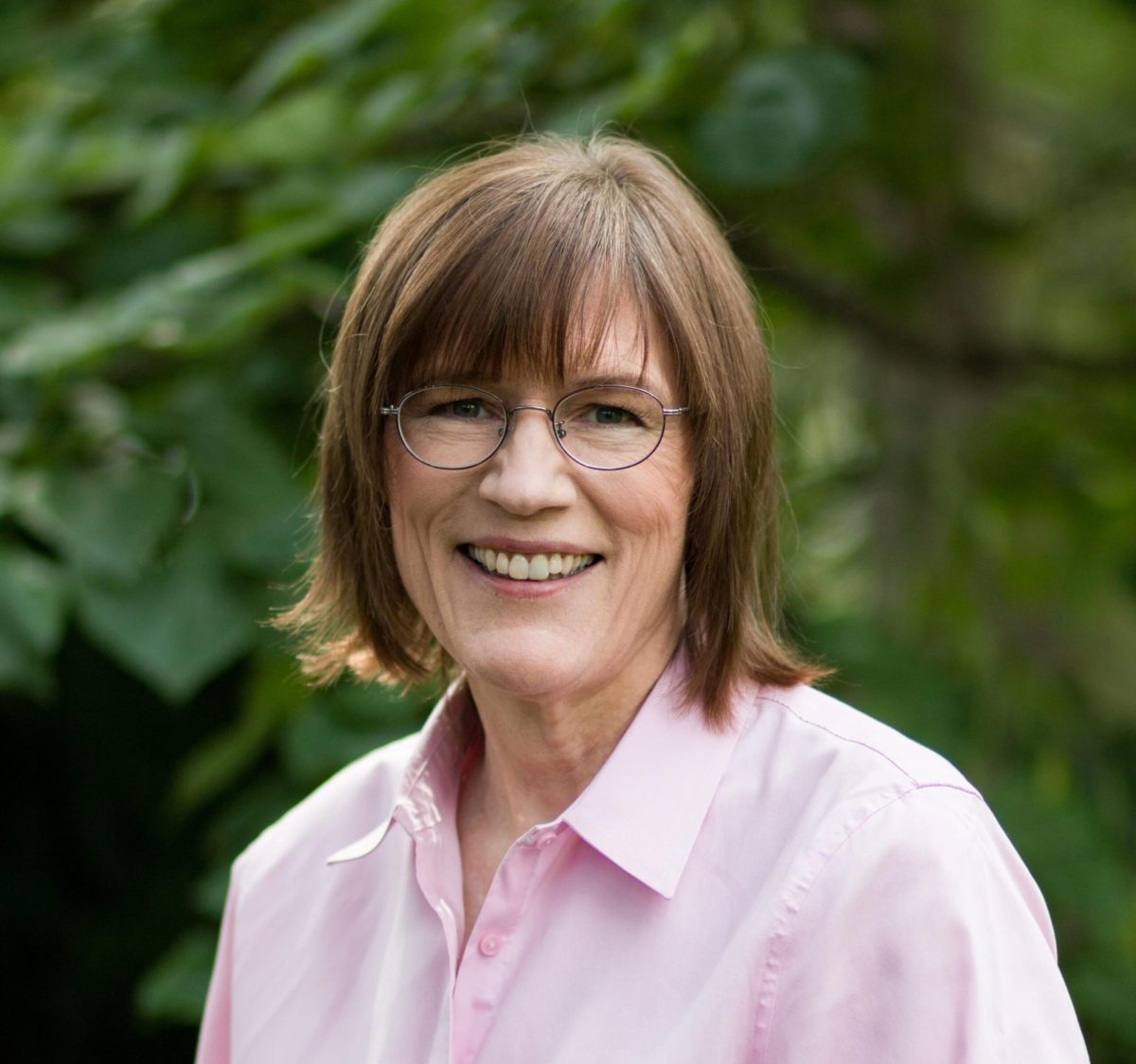New class will focus students’ problem-solving skills on communities in and outside of school.
Social Entrepreneurship, a new class in Malvern’s Social Studies Department, kicked off for the school year after running a two week intensive version of the class over the summer.
Twenty students are taking the class being taught by a group of five teachers.
“Within the experiential education program, we’re trying to create opportunities for students in the classroom that go along with curriculum that also match the mission of the school,” Director of Experiential Learning Aaron Brady said. “You empathize with a problem people are having, and we’re going to ideate a way to solve that and then prototype something to make it better.”
Head of School Mr. Christian Talbot, English Department Leader Mr. Jay Rogai, Social Studies Teacher Mrs. Harriet Lappas, Theology Teacher Mr. Andrew DiDomenico and Director of Experiential Learning Mr. Aaron Brady are co-teaching the class.
“This approach to the class lets it be as student-centered as possible,” Talbot said. “The teachers do as little talking as possible. We’re there to coach students. We’re not there to be the teachers.”
The twenty students are split into five groups of four, with one teacher acting as the coach for each group.
“It wouldn’t be practical, or appropriate, for one person to float around from team to team, so I knew I didn’t want to just do it by myself,” Talbot said. “I also thought that if this really is an experiment, in a kind of systematically and deeply student-centered approach to learning, why not ask if there are other teachers who want to experiment with me?”
The summer intensive version of the class culminated with projects focused on the junior’s international service trip. According to Talbot, the year-long class is focused on local problems and trying to find solutions.
“I wouldn’t say there’s anything fundamentally different about the full school year version [of the class],” Talbot said. “It’s just longer.”
Students will spend the first part of the year practicing their problem-solving skills in groups. Later, according to Talbot, students will focus on issues in Southeastern Pennsylvania.
But before moving beyond Malvern, one group is attempting to create a new winter dress code.
“They’re not going to actually make an outfit,” Brady said. “They’re going to say, on paper, well this is what it could look like. It still has to be professional, but also maybe not a coat and tie everyday.”
Senior Billy Murphy is a part of a different group, one working on students’ involvement in the school.
“I am working on student input,” Murphy said. “We are trying to give students a bigger role in school decisions and get their ideas to the faculty and administrators.”
“The class is pretty interesting,” Murphy said. “It’s much different than any other class I have had at Malvern.”
At the end of the year, students will present their ideas and prototypes to a board of alumni, whose jobs will be to critique and offer advice.
“We’re going to try to do just like Shark Tank on TV where people try to come up with ideas,” Brady said. “We’re going to have a board of alums to serve as our shark tank. Each group will present their idea to the board, and the board will come back and say like, ‘This part is great. Here’s how you can get better. Here’s where you need to improve.’”
“I hesitate to use that [Shark Tank] analogy,” Talbot said. “Only because I think Shark Tank is about competition and trying to get money, and that’s not really the ethos behind what we’re doing.”
“But I think if you’re an entrepreneur and you have either a product or service that you’ve designed, you need to get feedback on it,” Talbot said. “The most intense and official way to do that is to have the pressure of presenting your product to a panel of CEOs.”
Social Entrepreneurship brings a new topic, class structure, and ideas to Malvern’s campus.
“Taking the class I didn’t really know what I was going to gain,” Murphy said. “But by the end of the year I think I will be much better at working in groups and knowing my role [in a group], which can be very beneficial in college and in the working world.”


